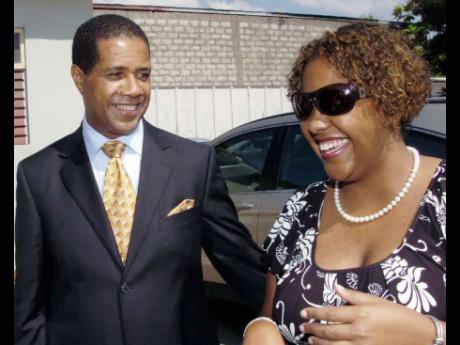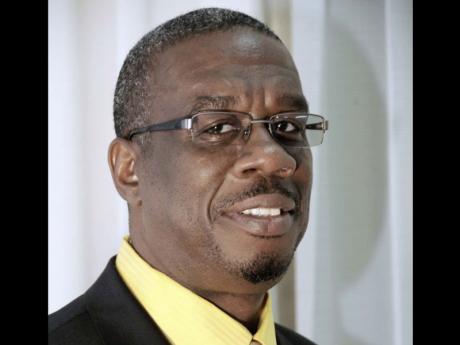Regional Health Authorities: A bad idea gone worse
Gary Spaulding, Senior Gleaner Writer
Ministry Paper 78, for the 2010 calendar year, which has been tabled in the House of Representatives, revealed that the four regional health authorities (RHAs) were among 134 government agencies which have never submitted reports for tabling in Parliament.
The four are the Southern Regional, Western Regional, South East Regional (SERHA), and North East Regional Health authorities.
This dereliction of duty and breach of the law may well be alarming but hardly shocking. For, no reason has been proffered by the four RHAs for failing to file even one report for all of 13 years. They were among 36 delinquent government entities which had no record of ever tabling reports to Parliament.
On the face of it, this delinquency on the part of the RHAs serves to vindicate the position of doctors and other detractors 13 years ago, that it was a bad idea to go this route. Today, the RHAs look like a bad idea gone worse.
The four RHAs are statutory bodies of the Ministry of Health and Environment, formed as part of the reform of the health sector by passage of the National Health Services Act of 1997.
The RHAs have administrative powers over the health facilities within the regions, including major hospitals. But anyone with a cursory association with, or passing knowledge of Jamaica's public health system would hardly be surprised at this open dereliction of duty by the RHAs.
Follow-up not done
A report commissioned by Minister of Health Ruddy Spencer on his appointment to manage this portfolio three years ago was a splendid idea. Tragically, however, it was a monumentally bad idea not to follow up with the recommendations of a task force headed by Dr Winston Davidson.
The task force was mandated to carry out a comprehensive review and evaluation of the Regional Health Authorities and their related entities with recommendations on the way forward to a cost-effective, comprehensive and sustainable health-care delivery system for Jamaica in the 21st century.
The Davidson team reported that "the Regional Health Authorities of the Ministry of Health have been the object of widespread criticism by health professionals, managers, and policymakers since their establishment in 1997."
The report adds: "This criticism has been levelled at problems related to policy, organisation, structure, manpower, finance, supplies, and maintenance."
The task force was of the view that the RHAs must be changed from semi-autonomous authorities to become regional coordinating and enabling organisations.
"In so doing, each will be an integral part of the organisation and structures of the ministry and a strong link between head office and the parish, enabling and supporting the function of implementation, which is the domain of the parishes," the task force said.
It also called for the re-establishing of the corporate structure to all hospitals, with each governed by a board of management and not a health committee of the region or parish.
The situation in the health sector today remains woeful despite Prime Minister Bruce Golding's avowal in 2007, when he came to office, that the sector's symptoms of ill-health had to be addressed.
Now, three years later, the malady remains. How could this be?
It has been 13 years since the People's National Party administration established the RHAs against the advice of senior medical personnel at the hospitals islandwide.
Wrong motivation
As was the case in other sections of the Caribbean in the 1990s, the Regional Health Authorities were created as part of the Government's efforts to decentralise the management and provision of health care in Jamaica. As it turned out, Jamaica is no Trinidad and Tobago.
Over the years, the RHAs and senior positions in the public-hospital system have been administered by persons who are clearly motivated by the need to protect their jobs and status instead of advancing the Government's vision of a cost-effective, sustainable health-care delivery system. Ultimately, the RHAs have full responsibility over the hospitals.
Having stumbled on an internal report of the atrocities that were perpetrated at the Kingston Public Hospital some years ago, I am firmly of the view that the operatives within the RHAs, and the health system in general, have become adept at brushing real issues under the carpet at the expense of the care of the patients who attend the facilities.
When I brought the matter of the atrocities contained in the report to the attention of a public servant who has since been sent to one of the regional health authorities, he was more interested to know how I had obtained the report on the abominable treatment that was being meted out to members of the public, than what would be done to address the problem.
Can one, therefore, blame persons who rush abroad to seek medical treatment as they feel that a minor bellyache is coming on?
My probe led me to the conclusion that the human-rights groups would do well to focus their attention on the health sector. I suspect that the treatment at hospital is worse than police excesses, if less spectacular.
Monumental nightmare
When medical professionals, particularly doctors, objected to the decision to implement these bungling bureaucracies that the RHAs had become, there were many in the public domain who thought the senior doctors in particular, were peevish and petty.
As administrators of the nation health portfolio, these RHAs have turned out to be a nightmare of monumental proportions to various ministers of health in both administrations.
There are indications that frequently, the ministers have not been adequately briefed on important matters concerning the region and individual hospitals.
On repeated occasions, when I sought information from ministers, I was told that they would have to get back to me as they were not aware of the existence of an issue.
According to the information I received from a former minister, when the malfunctioning elevator at the Victoria Jubilee Hospital served as a macabre joke as it became a death trap in a facility that should be saving life, the minister did not know about it.
When the precious commodity that is water was unavailable at the Victoria Jubilee Hospital and the Kingston Public Hospital, the minister told me he had to get in touch with officials at SERHA.
To be fair, the current chairman, Tanny Shirley, is head and shoulders above his predecessors and colleagues in the area of accessibility.
I have spoken to many health officials who made it clear that they were strongly opposed to the implementation of the no-user-fee system, which was implemented by the Jamaica Labour Party.
The attitude of the senior managers has trickled down to on-the-ground staff members, evident in their treatment of hapless patients.
If health officials failed to buy into the no-user-fee plan, how could it be expected to work?
So, is the cause of the problem incompetence, inefficiency or an unwillingness to be scrutinised on the part of the RHAs?
The jury is still out on that and Dr Davidson has opted not to go down the wicket, but stressed that some revamping was urgently needed.
Minister Ruddy Spencer, it is high time that you revisit the Davidson Task Force Report. Your success may well depend on it. The RHAs in their current form will continue to be a recipe for disaster.
Feedback may be sent to columns@gleanerjm.com.


